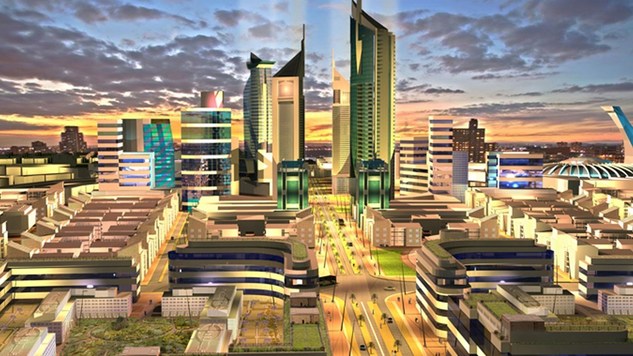MOBILE connectivity is transforming communities and empowering people with access to life changing apps and technologies. With 70% of the world’s population currently having access to 3G networks and 4G coverage growing at an even more explosive rate, the potential for us to interact and engage with each other has never been higher.
This rapid change has ushered in a fresh debate around “Smart Cities”, focusing on the kinds of connectivity that will unify the entire ecosystem and improve how we live; where sensors and smartphones can track how we use materials in order to ensure we use them more effectively; where renewable energies are generated locally to avoid recourse to inefficient power supply grids; or where data will help to decrease traffic, emissions and time wasted in congestion zones. The power of connectivity allows us to integrate these technologies at all levels, enabling people to enjoy better lives.
For people in Africa, this high-tech version of a Smart City risks over-simplification. We admire the sentiment and ambition behind it but a far more complex and fundamental process is underway.
When I took part in a debate on this subject at the Mobile World Congress 2016, I began by saying that in order to build Smart Cities we need to get back to basics first. The key planning principle must be a bottom-up approach.
Basic infrastructure, flexible network-sharing opportunities and universal interoperability; these are all vital and cost-effective cornerstones on which to build a Smart City and a more efficient future. Without these, our current cities will not survive and future ones cannot exist.
We also need governments, regulators and service providers to work in partnership, invest for the long term and apply common standards in order to ensure wider digital and financial inclusion, which are urgent priorities.
In support of this, we need to improve digital literacy and smartphone affordability, by promoting better education in schools, widening public awareness of, as well as access to the internet, and lowering costs.
So rather than focus on M2M technology and the “Internet of Things” set against a backdrop of sleek ultra-modern urban design, we should focus on more fundamental practicalities. These include mobile birth registration and ensuring that every child receives a birth certificate; telemedicine, so that every parent is within easy reach of free medical advice for their child and; mobile money, so that every person can send and receive money and be a contributor to their local and national economies.
As Africa’s socio-economic development reaches an advanced stage, Smart Cities will depend on good connectivity and affordable mobile phones. In addition to this, government investment in ICT will be vital, but so will participation from the private sector and society itself. There must be a positive stakeholder partnership between these parties that balances interests to achieve an inclusive and holistic outcome for all.
It will take a back-to-basics approach to ensure future Smart City planners have the necessary data when it comes to planning schools and hospitals, roads, transport services or public sector policies. And without this data, planners will struggle to get the insights they need to effectively transform their systems, operations and services. We would be left in a society unable to cater to the needs of the many.
The future belongs to all of us. So let’s continue to reach the unconnected, and begin our journey where it actually starts.
– The author is the Africa CEO of Millicom

